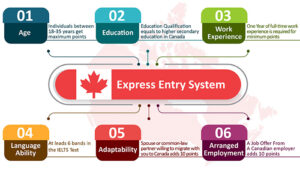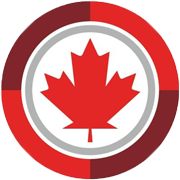Canada, renowned for its welcoming immigration policies, has been a magnet for skilled professionals seeking a new beginning. The coveted Permanent Residency (PR) status is a gateway to a stable future in the Great White North. For aspirants, accumulating points through various criteria is paramount, and education plays a pivotal role in this journey.
The Comprehensive Ranking System (CRS) is the benchmark used by the Canadian government to evaluate candidates applying for Express Entry – the primary immigration pathway. Education is a crucial factor, and candidates can amass points based on their qualifications.
The maximum number of points one can obtain for education in the CRS system is 150. Educational credentials are assessed through the Educational Credential Assessment (ECA) process, which evaluates foreign degrees to ensure they are equivalent to Canadian standards.
For a candidate to earn maximum points, a Master’s degree or a Ph.D. is required. A Master’s degree fetches 135 points, while a Ph.D. earns the full 150 points. Additionally, candidates with Canadian educational credentials gain extra points, further enhancing their CRS score.
Importance of education in the PR process

The importance of education in the PR process is reflective of Canada’s commitment to attracting highly skilled individuals who can contribute to the country’s growth. The Canadian government values the knowledge and expertise brought by immigrants, and educational qualifications serve as a reliable indicator of an individual’s potential contributions to the Canadian workforce.
However, it’s important to note that even candidates with lower educational qualifications are not entirely excluded. A bachelor’s degree fetches a substantial amount of points and combined with other factors like work experience and language proficiency, candidates can still achieve a competitive CRS score.
The adaptability factor, which considers a candidate’s spouse or common-law partner’s education, can also contribute additional points. This recognizes the significance of a well-educated family unit in contributing positively to Canadian society and economy.
Aspiring immigrants must pay attention to the equivalency of their educational credentials. The ECA process, carried out by designated organizations, helps bridge the gap between foreign degrees and Canadian standards. Ensuring that the education points accurately reflect the qualifications can make a significant difference in a candidate’s CRS score.
Education is a cornerstone in the journey towards obtaining a Canada PR visa. The CRS system places a considerable emphasis on educational qualifications, rewarding candidates for their academic achievements. As Canada continues to attract skilled professionals from around the globe, a well-structured and comprehensive education system remains a key determinant in securing a pathway to permanent residency in this diverse and welcoming nation.
Also Read: Estimating Cost of Living Abroad: A Guide for Immigrants




